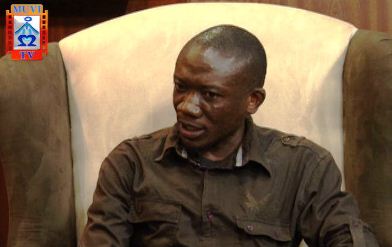By Pearl Rimon
Impunity Watch Reporter, South America
SANTIAGO, Chile – Chile’s Foreign Minister Alfredo Moreno met with Cuban Foreign Minister Bruno Rodríguez in Havana. Conservative groups hope the talks cover the extradition of fugitives suspected of killing Senator Jaime Guzmán in 1991.

However, it is reported that Moreno will meet privately with Rodríguez about the Guzmán case.
Guzmán founded the conservative Independent Democratic Union (UDI) party in 1983. He was also an advisor to General Augusto Pinochet and co-authored the country’s 1980 constitution.
Moreno and Rodríguez will meet with Costa Rica’s Foreign Minister, Enrique Castillo, the three together form the Community of Latin American and Caribbean states (CELAC) to discuss agreements reached in January during a conference in Santiago.
During the January CELAC conference, Cuban President Raúl Casto, promised President Sebastián Piñera his cooperation in locating the people who took part in the assassination plot. Piñera presented a UDI report that discussed that the alleged criminals are residing in Cuba.
The UDI received renewed impetus due to April 1st, being the 22nd anniversary of the senator’s assassination. He was assassinated by members of the Manuel Rodriguez Patriotic Front (FPMR).
UDI president, Patricio Melero, spoke at a memorial event for the slain senator. He said he hoped the diplomatic efforts would “…[P]ut an end to two decades of impunity and restore the dignity of Jaime Guzmán as a person, a politician and a good man.”
“We owe it not only to the memory of Jaime Guzmán but to all Chileans who believe in justice to continue pressuring national and international institutions to complete their role in facilitating the just conviction of those who planned and perpetrated his assassination, all of whom are today at liberty; this is the greatest injustice of all,” Melero said.
Groups like the FPMR credit Guzmán for some of the human rights abuses during the Pinochet dictatorship. The FPMR describes him as “one of the principal intellectual authors and ideologues of the (1973) military coup and subsequent genocide,” who “despite attempts to portray him as a saint, was always behind criminal acts enacted against the people.”
The only people to have been convicted for Guzmán’s murder were rescued in a dramatic prison escape via helicopter, which was planned by the FPMR in 1996.
A memorial for Guzmán was held on April 1, the 22nd anniversary of his death. PResidiental candidate Laurence Golborne, Interior Minister Andrés Chadwick, and UDI President Melero were in attendance.
For more information, please see:
Radio Cadena Agramonte — FMs of Cuba and Chile Hold Talks in Havana – 06 April 13
Santiago Times — Chilean Right seeks extradition for Guzmán killers – 03 April 13
Latercera — Jaime Guzman, ideals and leadership – 01 April 13
Santiago Times — Chilean conservatives commemorate assassinated Senator Jaime Guzmán – 01 April 13


